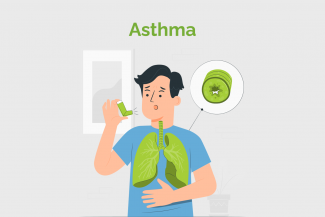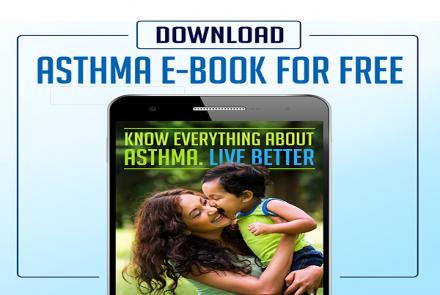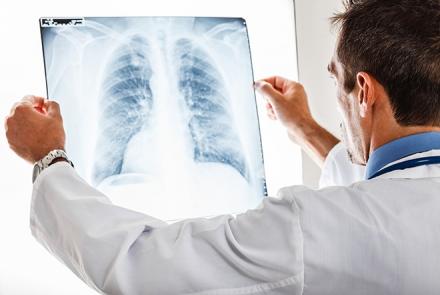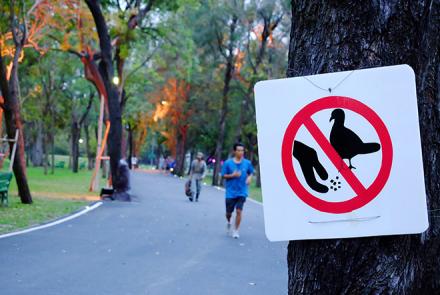
Asthma Treatment
Asthma is treated with two types of medicines: Long-term control and quick-relief medicines.
Long-term control medicines help reduce airway inflammation and prevent asthma symptoms. These include:
- Inhaled corticosteroids: These are the most effective line of treatment for long-term relief of the inflammation and swelling that makes airways sensitive.
- Cromolyn: This medicine helps prevent airway inflammation. It is taken using a device called nebulizer. As we breathe in, the nebulizer sends a fine mist of medicine to the lungs.
- Omalizumab: This medicine prevents the body from reacting to asthma triggers, such as pollen and dust. It is given as injections, once or twice a month.
- Inhaled long-acting beta2-agonists: These medicines open the airways.
- Leukotriene modifiers: These medicines help block the reaction that increases inflammation of the airways.
- Theophylline: Theophylline helps open the airways.
Quick-relief, or "rescue" medicines relieve asthma symptoms that flare up.
- Inhaled short-acting beta2-agonists are the first choice for quick relief. These medicines act quickly to relax tight muscles around your airways when you are having a flare-up. This allows the airways to open up so air can flow through them.
Asthma treatment for special groups
Children: It is difficult to diagnose asthma in children below 5 years. Infants and young children are treated with long-term control medicines. Inhaled corticosteroids are the preferred drugs. Montelukast and Cromolyn are the other options.
Older adults: The drugs need to be adjusted for asthma treatment in older adults who take certain other medicines, such as beta blockers, aspirin and other pain relievers, and anti-inflammatory medicines as these medicines can prevent asthma medicines from working well and may worsen asthma symptoms.
Pregnant women: Special precautions and care needs to be taken. The doctor needs to control asthma to ensure a good supply of oxygen to the baby. Poor asthma control increases the risk of a premature birth, of a low birth-weight baby and can even pose a risk to the baby’s life.

















